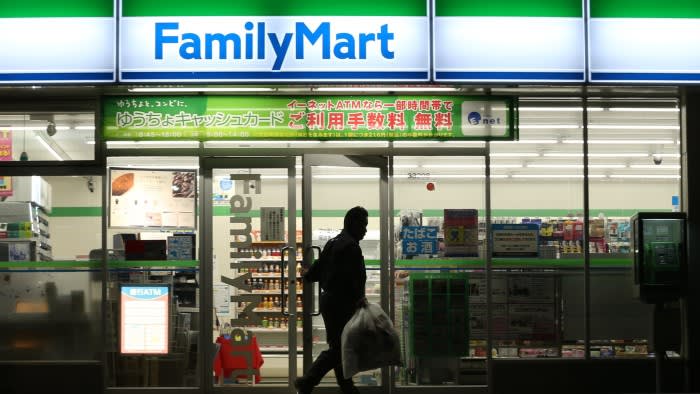
Unlock the Editor’s Digest for free
Roula Khalaf, Editor of the FT, selects her favourite stories in this weekly newsletter.
Even without humans, convenience stores in Japan have proven they can run themselves. Unmanned stores are catching on, with scanning machines making it easy for customers to check out on their own. Retailers may have also found an answer to physically cleaning these shops without humans. All this points to a more sustainable business model for local convenience store chain.
Japan’s convenience (konbini) stores are famous for offering not only a wide range of takeaway food but also services, such as free WiFi, cash machines and parcel delivery services.
Seven-Eleven Japan, the country’s largest convenience store chain, already runs a few unmanned stores in Tokyo. It plans to operate more stores without staff this spring. Its peer FamilyMart has started running these types of shops and has taken it a step further, with robots cleaning the store floors. Each one cleans the floor five times a day — precious time saved for employees that are increasingly difficult to hire given Japan’s labour shortage.
FamilyMart should benefit in two ways. It saves on labour costs at the stores that it runs directly. But also it will earn monthly fees from these automatons by lending them out to its franchise stores from April.
Japan needs these types of creative solutions as higher costs become a growing concern for convenience stores. Most are open 24 hours a day, seven days a week. Their sheer number — Seven-Eleven Japan alone has over 21,000 in the country — makes the sector highly sensitive to wage inflation.
Wages in Japan rose 3.8 per cent last year, the largest increase in three decades. Pay talks between business executives and labour union leaders are under way for the new fiscal year, suggesting further rises could follow in the coming months.
This problem is only going get worse. A shrinking, ageing population causes a severe labour crunch. A reversal is unlikely anytime soon.
Despite the cost hurdles, the share price of parent company Seven & i Holdings have climbed more than a tenth this year. Meanwhile its rival Lawson is up 42 per cent. Part of the latter’s rally includes market excitement over an announcement that Japanese telecoms group KDDI plans to launch a tender offer for Lawson.
But these gains are more a reflection of the strong outlook for the segment. Convenience store sales rose to a record high last year. This marked the third consecutive year of growth as the number of both local and foreign visitors to them increases. As these chains incorporate more automation and digital services, earnings should get a boost.
The Lex team produces timely commentary on capital trends and big businesses. We’d like to hear more from readers. Please tell us what you think in the comments section below or email lexfeedback@ft.com.


